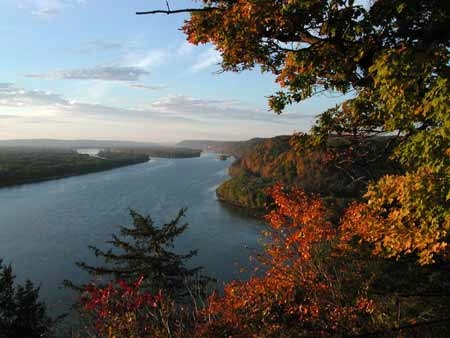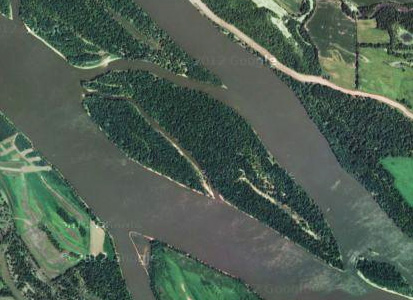An environmental foundation in Illinois received a very generous gift from a local donor on Thursday – a beautiful 170-acre island in the Upper Mississippi River.
The trend of islands transferring from private to public hands continues this month, with the recent donation of Coon Island in Illinois to the Lewis and Clark Community College Foundation (LCCC). While it may not be as high-profile as the reported purchase of D’Arros Island in the Seychelles by the Save Our Seas Foundation (link), attorney John Simmons’ gift to the LCCC is a wonderful act of generosity that serves to illustrate what an important role islands play in the health of the natural environment.
Coon Island is a vast, 170-acre stretch of low-lying island in the Upper Mississippi River, a region with abundant wildlife and spectacular scenery, beloved by locals for great fishing and boating. However, it’s not the island’s picturesque nature – or its history as a hang-out for notorious river pirates – that makes it so attractive to the LCCC, or to the NGO partner who will be studying the island, the National Great Rivers Research and Education Center (NGRECC). As unique and relatively isolated ecosystems, islands are often ideal places to conduct scientific research.
As an essentially untouched island, Coon is highly valuable for research into habitat and watershed restoration, said the organization in an interview with the local Telegraph newspaper. “Invasive species are a big impact on the terrestrial portion of the floodplain, as well as in the water,” said Lyle Guyon, a terrestrial ecologist with the group. “We don’t have anything as quite as charismatic as a giant, flying silver carp or something like that, but there are a lot of vines and plants that are negatively impacting habitats and crowding out native species.”
John Simmons told the paper that he decided to donate the island, which he bought 10 years ago and is assessed at US $250,000, after a discussion with State Representative Daniel Beiser (D). “I’m pleased to pass the island to the Foundation for use by the National Great Rivers Research and Education Center,” he said. “This River Bend area has an abundance of wildlife and natural history. I’m happy my donation will help in the mission of NGRREC to protect and sustain the river environment.”
Read more about this story: The Telegraph




